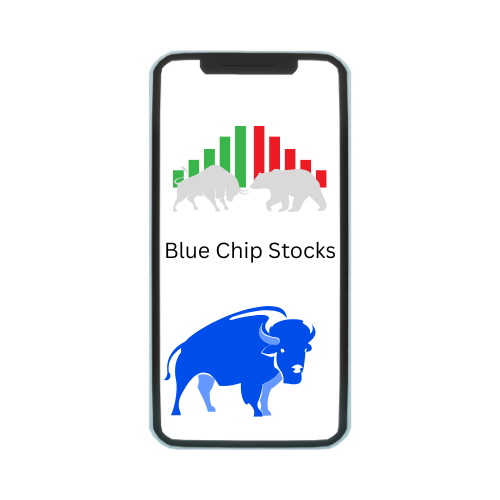Financial market
- Financial markets, which include the stock market, bond market, currency market, and derivatives market, among others, are any marketplace where trading in securities takes place. For capitalist economies to run smoothly, financial markets are essential.
- Any marketplace where securities are traded is referred to as a financial market. The forex, money, stock, and bond markets are only a few examples of the many different types of financial markets.
- These markets could involve commodities or securities that trade over the counter or are listed on regulated exchanges (OTC). A capitalist society’s efficient functioning depends on the efficient operation of financial markets, which trade in all varieties of securities. Economic upheavals, such as a recession and unemployment, can happen when financial markets fail.
What is a financial market?
- An area where the buying and selling of financial assets and securities take place is referred to as a financial market. It distributes scarce resources in the economy of the country. By transferring money between investors and collectors, it acts as an intermediary between the two.
- The stock market in a financial market enables investors to buy and sell publicly traded company shares. The primary stock market is where new stocks are initially launched, while the secondary market is where stock securities are traded.
Types of financial market
Groupings of Financial Markets
- The classifications listed below are important for students who are seeking to understand ” What are the types of financial markets?” There are two further sections that can be created from these classifications, and each is thoroughly discussed.
The Type of Claim
- Bonds, debentures, and other fixed-claim debt instruments are available for trading on the debt market. These financial holdings are available for purchase by traders at debt markets for a fixed return and a predetermined maturity period.
- The equity market is set up to handle residual claims. In these markets, investors can transact in equity financial holdings.
By claim maturity
- Treasury bills, certificates of deposits, and other financial instruments are available for trade in money markets. Since these markets typically do not have physical locations, these are typically short-term financial holdings that can be exchanged online.
Capital Market: Capital Markets are split into main and secondary Markets under the umbrella of Financial Markets. Primary Markets enable newly listed firms to offer new securities as well as new shares for existing corporations.
By Delivery Timing
- Cash Market: These Markets provide real-time settlement of transactions between various sellers and purchasers.
- Futures markets: These markets offer transactions where settlements and commodities are delivered at future times, among other sorts of financial markets and their uses.
In terms of organizational structure
- Exchange-Traded Market: These centralized trading markets record significant daily trade. When trading financial possessions like shares, these are governed by established procedures.
- Over-the-Counter Market: These Markets lack centralized organization and have customized processes. Traders are free to conduct their business without using a broker. Investors can trade in these Markets online, which are typically providing shares from small businesses.
Financial Markets by Types
They oversee the public stock exchange known as the Over-the-Counter (OTC) market, which is not traded on the NASDAQ, American Stock Exchange, or New York Stock Exchange. The OTC market primarily deals with small, inexpensively traded companies with little oversight.
- Bond Market: A financial market where investors lend money using bonds as security for a predetermined period of time at a specified rate of interest. All across the world, businesses, governments at the state, local, and federal levels issue bonds.
- Money Markets: These markets exchange highly liquid securities with short maturities and lend securities with a one-year or shorter maturity.
The derivatives market is where securities are traded whose values are derived from their underlying assets. The market price of the underlying security, such as futures, options, contracts for difference, forward contracts, and swaps, determines the value of the underlying derivative contract. Investors can trade currencies in the forex market, which is a financial marketplace. This is the most liquid financial market in the entire planet.
Functions of the money market
- Financial markets allocate resources and provide liquidity for firms and entrepreneurs, which is essential for the proper operation of capitalist economies. Trading financial holdings are made simple for buyers and sellers by the markets. Financial markets design securities as a way to reward investors and lenders who have extra money while also making that money available to those who need it (borrowers).
- One form of the financial market is the stock market. Buying and selling different kinds of financial assets, such as shares, bonds, currencies, and derivatives, creates the financial markets. To ensure that prices are efficient and appropriate, financial markets primarily rely on informational transparency. Securities market prices could fluctuate.
- The stock market is arguably the financial market that is most prevalent. These are places where investors and traders can buy and sell shares that are listed by companies. Companies use stock markets, also known as equities markets, to obtain cash through an initial public offering (IPO), after which shares are traded between different buyers and sellers in what is referred to as a secondary market.
Different types of financial market
- Financial markets allocate resources while also generating liquidity for commercial firms, assisting in the efficient operation of economies. In these Markets, several kinds of financial holdings can be traded. Financial markets play a crucial role in setting accurate and efficient market prices by enforcing informational openness.
- Notably, market valuations of financial holdings are frequently influenced by macroeconomic considerations, such as tax and other elements, which are not reflective of their fundamental value. There are many different kinds of financial markets; nevertheless, the New York Stock Exchange, one of the largest stock markets in the world, records daily trades of trillions of dollars.
- Financial Markets as a structure help the movement of savings and investments. This thus makes it easier for money to increase, which aids in the creation of products and services. Financial markets also play a significant role in the needs of investors, receivers, and even the overall economy of a nation. A country’s economic development is influenced by a variety of organizations that provide financial holdings like bonds and shares along with insurance, pension, and mutual fund products.
The Purposes of the Financial Market
The key duties of the financial market are listed below.
- Savings are mobilized by exchanging them for the most effective techniques.
- By interacting with investors and basing decisions on market supply and demand, it helps determine the price of assets.
- Bartered assets receive liquidity as a result.
- Less expensive and time-consuming since parties don’t have to invest extra time and money to find clients to trade securities with. By providing useful information on the securities traded on the financial market, it also lowers costs.
- Financial markets efficiently distribute savings and investments into the economy and support the expansion of capital for the production of goods and services. The demands of investors, recipients, and the general economy of a country are fueled by the proper combination of financial markets, institutions, and financial products and tools.
- Investors have the opportunity to focus on particular products and markets thanks to financial markets (bonds and equities), instruments (derivatives, bank CDs, and futures), and institutions (banks, pension funds, insurance companies, and mutual funds). “Financial markets and financial institutions jointly contribute to economic growth and not the relative mix of these two components,” according to Demirgcc-Kunt and Levine.



